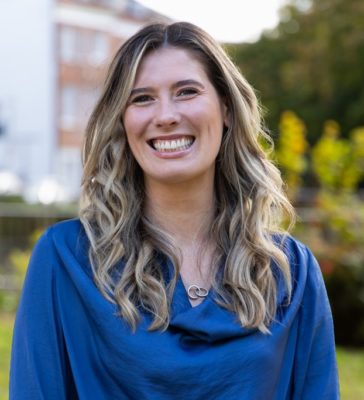
James Silvester
Current Employer/Organisation Name
Macfarlanes LLP
What have you been doing since leaving Exeter, and what are you doing now?
I graduated Exeter University with a BA English degree but stayed on campus to study a GDL with the University of Law. During this time I also worked for the graduate recruitment team conducting telephone surveys of former students. After this time I moved to London to continue studying an LPC with the University of Law. During this time I moved in with my partner and decided to avoid renting a flat by moving onto a narrowboat on London’s canals. We still live on the water. My pathway into law took a left turn when I decided to ditch law for a career as a legal technologist, a direction that I have not since looked back from and which I would not have found without my time at Exeter. After some time working in Canary Wharf I moved to my current company, a top city law firm where I am part of a small but growing team promoting and practicing legal technology on behalf of lawyers and clients.
Why did you choose this career? And what do you enjoy most about your work?
I chose this career for the creativity, passion and inventiveness I saw in the people I talked to and because the application of my skills and mind were a far better fit for reinventing law than practicing it. Quite frankly, I hit a mental blockage when applying for training contracts during my studies and for a time was resigned and unfulfilled contemplating a career in law. I knew something was missing, but at the time I thought it was something in me. Seeing a different path and realising that I had valuable skills to offer and could work in a law adjacent capacity was a proverbial lightbulb moment. What I enjoy most is the freedom offered by this profession. Like me, it’s still relatively nascent and figuring itself out, and it rewards the mindset and practice of empathy. This makes me passionate about promoting lawtech to anyone else who might have been struggling with the same things as I did during my training contract application days.
Please tell us if you were a member of any societies, groups or sports clubs?
I was a member of the Exsoc Outdoors society throughout my student life. I went on several great trips, many many firehouse pub nights and it’s also where I met several lifelong friends and the love of my life. I also signed up as a student mentor for the Approaches to Criticism course, where I probably learned more about the course as studying it a year earlier. I also took part in the Grand Challenges ‘Earth Tomorrow’ challenge during the summer of 2015.
What did you enjoy most about your programme and what was the biggest highlight?
The structure of the course, starting in first year with Approaches, the Novel and other foundation subjects and building in pathways, was amazing and gave me a full-teardown reality check and the skills needed to tackle later subjects with passion and rigour. It was also an amazing way of networking and building relationships with the people I studied with. Being allowed to choose seemingly disparate modules in second and third year emphasised the connections between all the fields of my studies, and I especially loved the inclusion of film courses. Study of film become a passion in my third year and formed a equal part of my dissertation. I loved thinking of films as just another text instead of a separate field of study. And though-and-through I was blessed with the most passionate, dedicated and inspiring teachers. A huge thank you goes to Drs Felicity Gee and Florian Stadtler and Professors Daisy Hay, Paul Young, Sinéad Moynihan as well as many many others.
What did you enjoy most about studying here?
Student life at Exeter was the right space to grow and test the waters of independence and of maturity. Student socials and clubs were extremely well supported, the campus facilities were great, particularly the central forum and stamina-training hikes of Streatham campus. I particularly valued my time spent working for the careers department after graduating. This gave me perhaps best careers advice possible – actually getting a job and working under the expectations of paid employment. I knew I had grown in my time at Exeter when I looked fondly at experiences that had once felt like going in the deep end. I had worked hard at a subject I loved (and still do!), formed friendships, had breakups, gone on many foolish and wonderful adventures, and ultimately grown in ways I wouldn’t have expected or contemplated as a fresh-faced first year student. Student life at Exeter wasn’t 100% easy, but by the end of my time I felt like I could actually handle real life and it was time to go find a bigger metaphorical body of water to swim in.
Why did you choose to study at Exeter?
I walked around the Streatham campus with my dad one day, avoiding an open day, and I was struck by the way that people were talking, their passion and camaraderie and the blend of nature and city that Exeter offered. Going back to a more formal open day I was convinced that Exeter was diverse, open and interesting, with an introductory lecture on Shakespeare and a tour to give a sense of what studying English at Exeter would be like.
What skills and experiences have been most useful for your career?
My English degree helped foster my communication skills, creativity, and empathy. As much of my job is new to people, many items of work will start with a process of trying to understand the issue at hand and how technology can help. Many aspects of legal technology involve improving existing processes of law or working to re-invent the provision of legal services. This might involve an AI-based document review (to save on human review time), an online portal with HTML/CSS coding (to create an attractive and user-friendly way to manage client documents and information), document automation (faster first drafts), or a combination of all these technologies and more! Recently, my role has expanded to include project management and leadership/training roles. Working as a mentor to other students for the Approaches module and participating in Exsoc expeditions gave me a grounding on the skills that underlie true teamwork, leadership and tenacity.
What advice would you give to a current student who wishes to pursue your career?
Be curious, read up on the market press and understand the terms at hand. So much of this role doesn’t ask for formal qualifications, just the soft skills you may develop along the way. Nothing can replace learning as you go, so seek out legal hackathons, lawtech societies and talks, try to ask questions at all of them! Think about the repeatable processes and ‘pain points’ of law, how would you make it better?
What are your plans for the future?
I plan to stay in this current career and hope to inspire the next generation of legal technologists!

